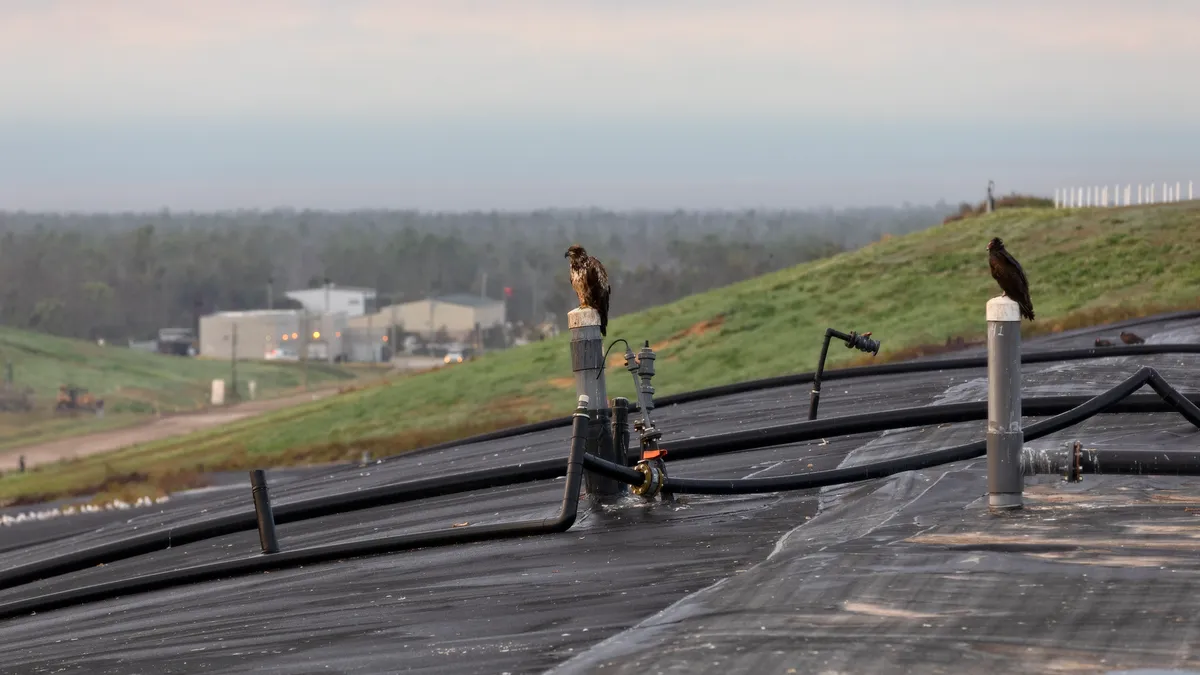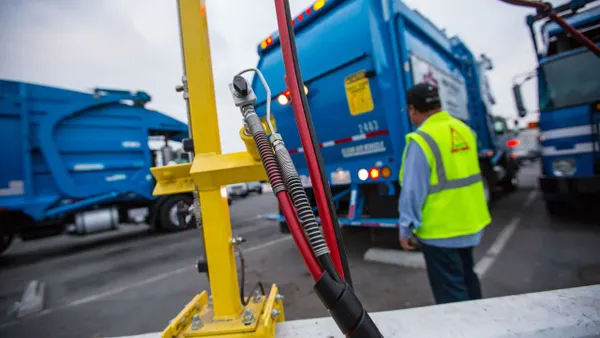John Ribeiro-Broomhead, a graduate of Stanford University’s master’s program in Atmosphere and Energy Sciences, recently co-authored a report on cutting methane emissions.
Methane, once an obscure greenhouse gas overshadowed in the public eye by its equally ugly stepsister, carbon dioxide, is having a moment. According to a 2021 United Nations report, methane emissions must be reduced by 45% by 2030 for the world to have a fighting chance at staving off catastrophic climate change. This was a wake-up call to global leaders, and at the COP26 conference last year President Joe Biden announced that over 100 nations signed on to the Global Methane Pledge, which commits signatories to reducing their methane emissions by 30% by 2030 compared to 2020 levels.
With the increased attention from decision-makers on reducing methane fast, the time is ripe (no pun intended) for the world to get serious about tackling organic waste. As the third largest source of anthropogenic methane emissions worldwide, our waste, and how we handle it, has a large impact on our ability to curb global warming.
A recent report I co-authored, released by Global Alliance for Incinerator Alternatives, the Changing Markets Foundation, and the Environmental Investigation Agency, outlines a plan for achieving these reductions in the agriculture, energy and waste sectors. The waste sector presents some of the easiest and most affordable opportunities available: organic waste prevention, source separation and composting.
Organic waste prevention is the most powerful tool for reducing methane emissions in the waste sector. Particularly for food waste, prevention avoids emissions from organic material rotting in landfills and precludes additional upstream emissions involved in food production, management and transportation. For all remaining organic discards, source separation, coupled with composting, has the next greatest impact.
Composting alone — an age-old, low-cost practice utilized around the world — could reduce solid waste methane emissions by 78%. While composting is the most straight-forward approach, some cities have seen some success with using anaerobic digestion, or feeding organic waste to animals. By adding bio-stabilization for residual waste, and biologically active cover for landfills and dumps, solid waste methane emissions could be reduced by as much as 95% by 2030.
Moreover, implementation strategies abound, and municipalities around the world are already moving rapidly to put them in place. The city of Thiruvananthapuram, India, achieved 80% participation in organic waste separation in the residential sector and 88% in the commercial sector in just five years through outreach and subsidies for small-scale organic waste treatment units like kitchen-bin composters. And Seoul, South Korea, virtually eliminated organic waste sent to disposal in nine years by instituting a pay-as-you-throw law where waste fees are charged based on the amount of waste generated.
Outreach and education campaigns, demand-planning programs for grocery stores and regulatory caps on food waste can go a long way to reducing the amount of organic waste that ever enters the stream, lowering emissions and waste management costs. Where direct prevention fails, food recovery for people, or redirection to animal feed for material that is no longer fit for human consumption, provides the same benefits of preventing organic material from entering the waste stream.
Additionally, waste prevention, source separation, and composting of organic discards can create more and better jobs than disposal methods, as well as a more stable, dignified livelihood for workers in the informal waste sector. Composting, for example, can create three times as many jobs as managed landfilling, and far outstrips open dumping, which generates a whopping zero jobs.
With such readily available, affordable and scalable options for managing methane emissions from organic waste, we can no longer afford to keep landfilling and burning what we don’t use. Incinerating organic waste makes no sense at all — because organic waste is wet, it takes a lot of energy to burn. This is extremely energy inefficient, not to mention costly, polluting and bad for climate. It’s abundantly clear that we can no longer landfill our organic waste either, since landfills are the primary source of methane emissions in the waste sector. We need to drastically change the way we manage waste if we hope to cut methane emissions by 45% over the next decade. A global transition to organic waste reduction, source separation and composting can get us there.
Contributed pieces do not reflect an editorial position by Waste Dive.
Do you have an opinion on this issue, or other topics we cover? Submit an op-ed.










